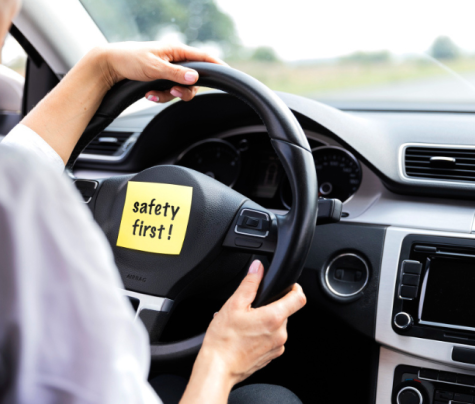
In Dubai, a city known for its bustling business, modern infrastructure, and luxurious lifestyle, the convenience of renting a car is often an attractive option for residents and visitors alike. Indeed, the number of individuals who prefer to rent a car monthly rather than buy one has been increasing steadily for the last several years.
The total revenue in the car rental market is expected to reach well over 170 million USD in 2023 and to continue growing with a steady 2% annual growth rate, resulting in a forecasted total value of almost 185 million USD by 2027. Furthermore, experts predict that the total number of car rental users will reach 700 thousand by the same year.
However, besides the obvious advantage of convenience, numerous legal intricacies demand careful consideration to avoid potential pitfalls. This article delves into the legal nuances surrounding car rentals in Dubai, shedding light on important aspects that renters should be aware of to ensure a seamless and lawful experience.
1. Contractual Obligations And Terms
Any car rental transaction involves a contractual agreement between the rental company and the customer. Understanding the terms and conditions outlined in the rental contract is extremely important. These documents typically define the responsibilities of both parties, specifying matters such as rental duration, mileage limitations, and the condition in which the vehicle should be returned.
In Dubai, the legal framework governing car rentals emphasizes the importance of transparency in contractual terms. Therefore, renters must scrutinize the agreement thoroughly, seeking clarification on any ambiguous clauses before committing to the rental.
2. Driving License And Age Requirements
To legally drive a rental car in Dubai, drivers must possess a valid driver’s license issued by the United Arab Emirates or an international driving permit. The minimum age for renting a car is typically 21. However, some rental companies may impose higher age restrictions for specific vehicle categories.
Violating these age requirements could result in legal consequences, including fines and possibly having the rental terminated. Renters must ensure their driver’s license is valid for the entire rental duration and comply with local regulations to avoid legal complications.
3. Insurance Coverage
The importance of insurance coverage must be balanced when renting a car in Dubai. Most rental agreements include basic insurance coverage, but the terms and extent of coverage may vary. Renters should familiarise themselves with the types of insurance offered, including liability coverage, collision damage waiver, and comprehensive coverage.
It is always important to carefully analyze the insurance policy and to understand the extent of coverage and exclusions. Supplemental insurance may be necessary depending on individual preferences and circumstances, and it is essential to communicate openly with the rental company to tailor coverage to specific needs.
4. Traffic Violations And Fines
Dubai’s stringent traffic regulations are designed to maintain order on the roads and ensure all traffic participants’ safety. Renters must know the traffic rules and regulations to avoid fines and legal repercussions. Traffic violations, if incurred during the rental period, are the renter’s responsibility.
These violations may include speeding, illegal parking, or failure to adhere to lane discipline. To circumvent legal entanglements, renters should familiarise themselves with local traffic laws and exercise the utmost caution while navigating the city’s roadways.
5. Vehicle Inspection And Return Conditions
Before accepting the keys to a rental car, renters should thoroughly inspect the vehicle, documenting any pre-existing damage or other issues. This precautionary measure protects renters from unjustified claims for damages upon returning the car.
Upon the vehicle’s return, the renter and the rental company should conduct a joint inspection to verify its condition. Discrepancies in the return condition may lead to disputes, emphasizing the importance of comprehensive documentation.
Conclusion
The legal nuances surrounding car rentals in Dubai underscore the necessity for meticulous attention to detail by both renters and rental companies. Navigating the intricacies of rental agreements, understanding contractual obligations, and adhering to local laws are imperative steps to ensure a smooth and lawful experience in the vibrant city of Dubai.
In essence, the legal intricacies surrounding car rentals in Dubai are not obstacles but guideposts, directing renters towards a journey that is enjoyable and legally sound. By embracing a proactive and informed approach, renters can confidently navigate the city’s roads, knowing that they have taken the necessary steps to avoid potential pitfalls.
Dubai’s dynamic landscape, a fusion of tradition and modernity, awaits those who explore it with a rented vehicle. In doing so, let the legal nuances be a framework for a seamless, responsible, and enriching car rental experience in one of the world’s most captivating cities.
This May Also Help:
- What Are The Types Of Hold Harmless Agreements?
- What Kind Of Lawyer Do I Need? Here Is Your Answer!
- How To Become A Lawyer










1 Reply
website
June 13, 2024 at 5:54 am
https://lawyersinventory.com/legal-nuances-navigating-car-rental-in-dubai-and-avoiding-pitfalls/ Turbo rent a car I wanted to thank you for the important and useful web content you regularly share on your blog. Your understandings and tips have actually substantially helped me increase my understanding. I appreciate the effort you put into each message and the value you bring to the on the internet community. Your commitment to excellence as a reliable source of details is truly valued. I am excited to continue reviewing your insightful messages in the future. Finest regards, Wahi
Reply